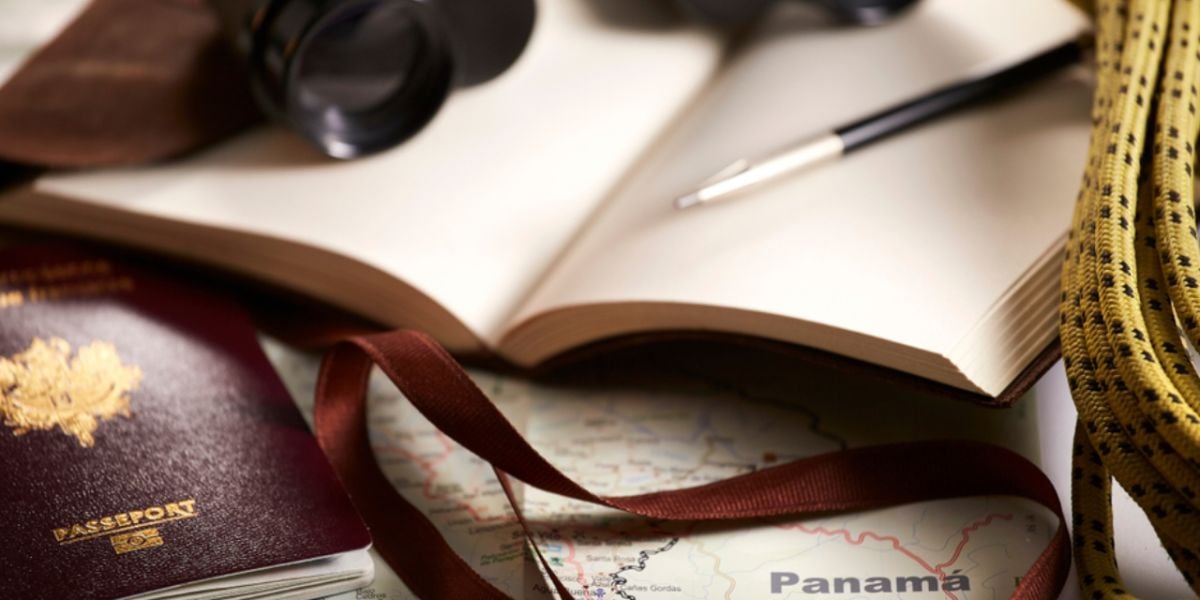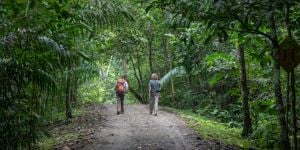
Panama is an appealing destination for international students. Its mix of affordable public universities and specialized private institutions provides excellent opportunities for academic growth. This guide explores Panama's higher education system, student visa requirements and various aspects of student life.
Public and private universities in Panama
Panama is home to a large number of higher education institutions. The majority are private.
Public universities
These include the University of Panama, the Technological University of Panama, the Autonomous University of Chiriquí and the Specialized University of the Americas. These institutions are more affordable than private ones and many similar educational centers worldwide.
Panamanians benefit from subsidized tuition. Foreigners are also welcome at public universities. Some institutions and government programs offer scholarships for international students. Otherwise, tuition fees are relatively low. Hence, studying at local public universities will not break the bank.
This fact makes Panama stand out as a pro-education environment compared to many other parts of the world, where students must take out loans. Young professionals in such countries enter the world of employment saddled with considerable debt. The availability of low-cost education reflects the commitment of successive Panamanian governments to cultivating a well-educated population. The latter is vital in transitioning the country from a history of challenges to a prosperous society.
Private universities
Panama hosts more than 80 private universities. Some well-known names include the Latin American University of Science and Technology, Latina University of Panama, Isthmus University, Columbus University and Florida State University. These institutions offer a wide variety of programs and flexible schedules. Tuition costs at these universities are much higher than those at public ones and are comparable to fees in many other countries.
The cost of higher education in Panama varies depending on the type of institution, the major and the program. The most popular fields of study for international students include medicine, software development, biotechnology, engineering, psychology, digital marketing and international business.
Studying in Panama as an international student
As mentioned above, Panama offers a generous academic selection, with affordable tuition fees at public universities and specialized programs at private ones.
The academic year in Panama consists of two semesters: the first starts in March and the second in August.
Studying and practicing Spanish is an advantage for international students. Spanish is the second most spoken language in the world by native speakers. Public universities offer courses in Spanish, and applicants must prove proficiency in the language to enroll. However, some private institutions offer programs in English. Panama also hosts many language schools.
Panamanian universities require applicants to prove their educational background. International students must ensure that their academic qualifications are valid in Panama. They may need to provide an apostilled diploma and have it validated by the Ministry of Education.
Student visa requirements in Panama
Foreigners wishing to study in Panama must apply for a student visa through the National Migration Service. The key requirement is an official acceptance letter from an educational institution. They must also prove their financial ability to cover tuition and living costs.
The general requirements for student visas are:
- Passport copy (notarized);
- Three photos;
- Criminal record certificate;
- Health certificate;
- Admission letter;
- Proof of enrollment specifying the applicant's name, program, academic year and subjects;
- Receipt of tuition payment;
- Evidence of previous studies (certificates or diplomas, authenticated);
- Proof of financial means (bank statement, sponsorship letter);
- Responsibility letter (in case a third person is covering costs);
- National Treasury's fees.
The student visa is a one-year temporary residency, which can be extended annually for up to six years. Residents must submit extensions before the current permit expires.
To obtain a student visa, applicants must attend classes during the day. However, some educational centers may offer only night classes. In such cases, foreigners must provide a certification from the institution stating that the course takes place only at night.
Good to know:
Foreign nationals residing in Panama on a student visa are not allowed to work. The only exception is professional practice mandated by the educational institution.
Student life in Panama
The life of an international student is exciting, filled with endless novelty — new places, people and experiences. However, it also marks the transition into adult life, where students must plan their living arrangements.
While the cost of living in Panama is lower than in many Western countries, it is not cheap. Student housing is widely available, as most universities do not offer on-campus accommodation. Florida State University is an exception, providing housing for USD 3,000 per semester. As a result, most international students must find off-campus housing. Transportation in Panama is affordable and will not break the bank, but groceries can be quite expensive. Some businesses offer occasional student discounts. However, there are no permanent programs in the country providing broader student benefits.
While the housing situation may not be very student-friendly, international students in Panama never lack opportunities to socialize. Panama City's concerts, museums, fairs, and theatres offer a complete cultural immersion and a great chance to mingle. The capital is also known for its vibrant nightlife—ideal for a weekend break from study.
Takeaway
Panama's rich culture and stunning nature make it an exciting place for international students. This tropical country offers excellent opportunities to gain a profession and learn Spanish. Its public institutions offer low tuition, and private universities provide a wide range of specialized programs. A student visa is mandatory for those wishing to study in Panama. The visa is easy to obtain with proof of enrollment and funds to cover tuition and living costs. The Panamanian student visa does not grant the right to work in the country.
Useful links:
Technological University of Panama
Autonomous University of Chiriquí
Specialized University of the Americas
We do our best to provide accurate and up to date information. However, if you have noticed any inaccuracies in this article, please let us know in the comments section below.








